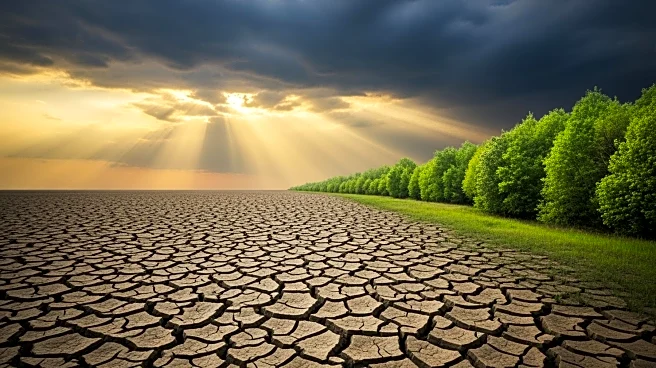What's Happening?
The United Nations Environmental Programme has released a report indicating that current climate pledges under the Paris Agreement have only slightly reduced global temperature projections for this century.
The report warns that the planet is still on track for catastrophic climate events, with projected temperatures ranging between 2.3°C and 2.5°C above preindustrial levels. This is a slight improvement from last year's projections but remains far from the targets needed to avoid severe climate impacts. The report highlights the increase in greenhouse gas emissions, driven primarily by land use changes and forestry, and notes that only the European Union among the largest emitters has reduced emissions. The findings coincide with the COP30 climate conference in Brazil, where the lack of U.S. participation is seen as a setback for global climate efforts.
Why It's Important?
The report underscores the urgent need for enhanced climate action to prevent catastrophic environmental consequences. The failure to meet climate goals poses significant risks to global economies, ecosystems, and human health. The U.S.'s role is particularly critical, as its actions influence global climate policy and commitments. The report's findings may pressure governments and industries to accelerate their transition to sustainable practices and reduce reliance on fossil fuels. The potential impacts of climate change, including extreme weather events, sea-level rise, and biodiversity loss, could have profound effects on societies worldwide, necessitating immediate and coordinated efforts to mitigate these risks.
Beyond the Headlines
The report's implications extend beyond immediate climate action, highlighting ethical and intergenerational responsibilities. The failure to address climate change adequately raises questions about equity and justice, as vulnerable populations are disproportionately affected by environmental degradation. The report may also influence cultural shifts towards sustainability, encouraging individuals and communities to adopt environmentally friendly practices. Long-term, the findings could drive innovation in renewable energy and sustainable technologies, reshaping industries and economies. The report serves as a call to action for policymakers, businesses, and civil society to prioritize climate resilience and sustainability.










